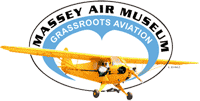By Jeff Brown
Dover Post News editor
jeff.brown@doverpost.com
November 14, 2007
At first the woman in the store parking lot thought the big, shaggy animal penned in the back of Tony Markl's pickup was a bear. It wasn't, Markl said, laughing at the memory, but the lady's confusion was understandable. The longhaired beast actually was a six-month-old Scottish Highland calf, part of the small herd of cattle Markl and his wife Pat are raising on their Marydel-area farm.
The Markls are just two of a handful of people on the Eastern Shore who own the unique bovines, known for their gentleness, hardiness and the lean cuts of beef they provide. And with a good chunk of their pastureland straddling the Delaware line, the Markls also have a good claim to being the only Highland herders in the First State.
A new vocation
The couple's sojourn into raising cattle began in September 2003 with a trip to Maine, Pat said. "We were up there, and I saw this fluffy little brown thing with these great big brown eyes," she said. "I didn't know what it was, but I decided I wanted one." Ever the accommodating husband, Tony made the purchase. Four years later, thanks to additional sales and by allowing nature to take its course, the herd has expanded to 19 animals.
They also have brought some stability to the Markl's lives. Before settling down, the couple led somewhat of a bohemian life, including living on a boat in Florida and the Bahamas. Tony, now 73, trekked to Germany every few weeks, where he would fly passenger aircraft around Europe while Pat, 67, kept an eye on things at home. They came to Delmarva when Pat's daughter married and where Tony found a job in Felton restoring aircraft. It's a hobby he continues today, in between flying his own aircraft from a runway on their ranch and taking care of the couple's herd. Pat also divides her time between the ranch, which they've dubbed "Our Domain," and teaching sailing, having obtained her captain's license some years ago.
Well suited for Delmarva
Scottish Highlands are considered a genetically pure breed, and many show animals have pedigrees stretching back into the 1800s. They're stockier than most cattle, being built closer to the ground, and have a double coat of long hair that keeps them dry and insulated from what Tony calls the "horrendous Scottish weather."
|
Like their wild brethren, even domesticated Highlands are relatively self-sufficient, rarely needing to be kept in a barn and being able to graze almost anywhere. Tony said he rarely needs to call on the services of his local veterinarian.
Many Highland ranchers have small spreads similar to the Mark's 25-acre farm, and breed the animals both for show and the dinner table. Their heavy coats insulate them from the weather, meaning the animals develop little fat, making their flesh extremely lean and therefore healthier for human consumption than other breeds, said Roger Jestel, a member of the Northeast Highland Cattle Association in Hilton, N.Y. "Most are raised on small farms, and they're close to people. If that happens you usually get good-natured animals," he said. "The less good-natured ones usually end up in the freezer."
Because the Highlands spend so much time outside, they get much more exercise than other cattle, contributing to their leanness. That, and the fact they graze instead of being given hay and other feed, also affects what eventually ends up on someone's dinner plate, Jestel said. Most people think the meat tastes similar to deer or buffalo, he added. "We think you can tell the difference, and the people we sell to can tell the difference," Jestel said. "It's not a soft flesh. Some people like their steaks to be fit for fork-cutting, and these are not like that."
'Really neat'
Despite the fact that many of their animals almost could be considered pets, the Markls know their operation also is a business. Although the Highlands require little in the way of supplies, they still entail some expense for the couple. Tony manages to save money by inventing or building some of the necessary equipment himself, and the fact the cattle can graze on their farmland, eliminating much of the need for hay, also is a cost saver.
The Markls planned to sell at least three of their animals at a cattle show in upstate New York, where a healthy two-and-a-half-year-old cow can bring about $1,000. Prices for other animals, however, including show bulls, can reach as much as $10,000, he said.
All in all, the Markls are happy with their new, Scottish Highland-centered lives. The animals help keep them occupied, although not terribly so, and provide an outlet for their nurturing instincts. And, Tony and Pat admit, they're just plain fun to be around. "We invite people to come out and see them all the time," Pat said. "That's how you really can come to appreciate them. They're really neat."
|

